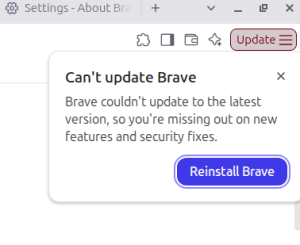Exploring Mars Is NOT Safe

Over the past week, we have been starkly reminded that space exploration is risky. We remember the Apollo 1 fire, the Challenger explosion, and the disintegration of Columbia. Those stand out in the public mind because these fatalities were spectacular. Challenger and Columbia happened on national television. Apollo 1 was when more people started questioning whether space exploration was worth the risk. Even with the casualties involved, we have pretty well demonstrated a mastery of getting satellites and space stations into Low Earth Orbit (if only we could clean up the debris) and are beginning to set our sights on other planets.
Even many space enthusiasts see the Moon as, “Been there, done that, maybe we can put a permanent base there. A telescope on the far side would be massively cool for astronomy.” Which means Mars seems to be a general favorite. Is it going to be safe? Of course not. Out of a crew of four, we could have one fatality during an excursion and another who comes down with a debilitating disease that we can’t treat on Mars. We could lose the entire crew due to an undetected problem with the oxygen generator that asphyxiates us in the night. However, the risks should not be a show-stopper. We’re not going to Mars to die. We’re moving to a potential new home that has its challenges but can be transformed to suit human needs.
Too many people don’t see it that way. These are the kinds of people who see the warning labels on everything and all the regulations that are very convoluted and complex as a way to protect people from the hazards of everyday life. Most people with common sense are going to know that the coffee handed to you by that drive through worker is going to be hot. However, when businesses start looking at the risk of a lawsuit, they start doing everything they can to reduce their liability and that means they are going to take as few risks as possible.
What Those Who Complain About The Risk Sound Like To Me
Okay, how many of you here actually remember Jose Jimenez? He wants to, he really does. He is just too chicken to do it.
When you remove the risk, you also remove the chance of real innovation. Test pilots know they’re on the front lines. They’re wringing out new hardware at 20,000 feet and they know there’s a real chance that they could make a smoking crater in the ground if something goes wrong. If they let fear paralyze them, they would never take a new airplane model off the ground and they would never last long as test pilots – not to mention being teased to death by all their peers who can actually hack it. We have relatively safe jet planes crisscrossing the country because Chuck Yeager’s contemporaries were deeply involved in developing the technology.
Would it be as easy to develop a revolutionary new technology like jet propulsion today? Probably not. In the U.S., the military budget is controlled by a Congress that only seems brave when it comes to okaying the funds to send other people to war. They seem less thrilled with the idea of developing the technology needed to make our troops safer. Is it because this new technology would actually cost money, or is it because any new technology is going to suffer inevitable failures before it becomes safe enough to use in the field?
It’s about the same thing with NASA. Two lost space shuttles has pretty much made bureaucrats who are already inclined to play it safe completely unwilling to take the kinds of risks that genuine astronauts expect to take. Not even Charles Bolden has much respect from me anymore since he told Congress that he was unwilling to send people to Mars because it’s too risky. He basically went from being a space shuttle astronaut who probably dreamed of exploring other planets at some point in his life to being a political lickboot who is afraid to do what it takes to expand the frontier. When Charles Bolden can’t get behind the idea, Congress sure isn’t going to have the political will to give NASA what it needs to change back into the same organization that sent people to the Moon.
Which is why I think Mars One has a better shot at getting people to Mars in a reasonable amount of time than NASA does at this point. They’re a private organization that doesn’t rely on tax dollars and a fickle Congress. If they have any trouble from the political arena at all, they can just pack up and move to another, friendlier nation who wouldn’t mind having the glory of seeing the first permanent, manned Martian outpost be launched from within their borders. It’ll be inconvenient and there is a possibility that they’d have to start all over again with another aerospace company if the USA suddenly gets a pickle up its butt about a private organization sending people to Mars.
Mars One and its candidates can take risks that would cause a typical government bureaucrat to faint. From the comments we get, most Americans would probably go pale at the idea of going to Mars and never come back these days. I’m hoping that’ll change once we’ve established that people can actually live on Mars. As long as it’s understood that the Mars One candidates know perfectly well what they’re signing up for and are volunteering for it anyway, the fact that they’ve weighted the risks against the benefits and decided that it’s worth it shouldn’t be a big deal.

It’s good to know that some people, like the Mars One candidates, are still capable of taking a calculated risk. Mars One could become the aerospace version of what entrepreneur Seth Godin calls a “purple cow” in one of his books on effective marketing – something that is still a cow, but is just different enough to get noticed if you can get it in front of the right audience. It wraps something that that people can understand into a new experience and attracts the early adopters who see how this new project can affect their daily lives in a positive way. Mars One would become the first private organization to put people on another celestial body rather than a government agency doing it. It saves costs by not including the return trip, which also has the side effect of being a useful way to get some drama in front of an audience. It already has the early adopters in the form of more than a thousand Mars One candidates who are spreading the word with their local news agencies. Can four people live long-term on another planet with a hostile environment and no guaranteed trip home in sight? We will certainly find out and we will also hopefully help pioneering people around the world remember that the frontier is still out there even if there are very few completely unknown parts of Earth left.
The final frontier is only visible if you are willing to get outside of your comfort zone and get away from the city lights to look up. (Take a good telescope with you.) Those of us who are space enthusiasts and willing to support it even if it means getting our own hands dirty and strapping ourselves into that rocket know that it is not going to be easy. Going there will be a risky business, but the ones who can take a calculated and managed risk will be the ones who will make it to Mars.
Look Up at the Final Frontier
[simple-rss feed=”http://rest.ebay.com/epn/v1/find/item.rss?keyword=Orion+telescope&sortOrder=BestMatch&programid=1&campaignid=5337337555&toolid=10039&minPrice=250&listingType1=All&lgeo=1&feedType=rss” limit=10]








